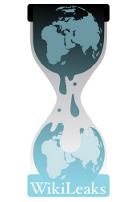Cablegate on African broadband: 2008 (Senegal, South Africa, Uganda)
Quite a few WikiLeaks cables deal with the behind-the-scenes of African broadband affairs. Using CablegateSearch.net we have listed the “juiciest” cables (if African broadband can be described as such), below. Many of the cables are extremely telling of what goes on behind closed doors and how the U.S. viewed African telecoms prospects from at least 2006-2009.
Next up are three cables from 2008. The main themes are greater competition in Senegal’s mobile market, broadband in South Africa ahead of World Cup 2010, and Ugandan President Museveni’s views on ICT challenges:
Senegal
-
- Summary: Sudatel, reportedly an independent, private firm, will begin operation as Senegal’s 3rd mobile operator in October 2008. Over the next fifteen years, the company will invest US $500 million. The arrival of Sudatel will increase competition, especially in the mobile market.
- U.S. viewpoint: Sudatel’s plan sounds ambitious. However, Senegal’s mobile market is rapidly expanding and Sonatel is losing its fixed-line monopoly. Effective ICT policies and decent infrastructure bode well for growth. 3G and Blackberry service are modernizing the telecommunications sector. The main concern is privacy, especially among customers of government-backed operators.
Notes:
- Will create more than one thousand jobs.
- The number of mobile users is expected to increase by 1 million by 2011.
- Sudatel represents 60% of transactions on the Khartoum, Sudan stock market.
- 650,000 registered Internet accounts as of September 2007 (96% are Sonatel ADSL)
- Unfortunately, the US $200 million license fee paid by Sudatel was spent on a March 2008 OIC summit instead of on ICT infrastructure.
- Link: Sudatel Should Bring A New Dynamic To Senegal’s Ict Sector, July 2, 2008
South Africa
-
- Summary: The SEACOM undersea fibre cable will be operational in advance of the 2010 World Cup. The South African government still needs to understand the cable’s ability to deliver sufficient bandwidth.
- U.S. viewpoint: SEACOM is a close ally of the United States and the 2010 cable will mark the beginning of U.S. ICT standards in Africa. The company has sought the help of the U.S. Embassy to promote their new cable. Additionally, SEACOM will provide low-cost bandwidth for USAID projects. And, there is potential need for U.S. businesses to install land-based infrastructure.
Notes:
- SEACOM needs better marketing to consumers. Most publicity has been on finance and management, but not academic initiatives.
- Link: SEACOM Only Undersea Fiber-optic Cable Project Slated To Be Online In Advance Of 2010 Fifa World Cup, June 12, 2008
Uganda
-
- Summary: President Museveni recently criticized the East African Community IT infrastructure, urging political leaders to solve the problem.
- U.S. viewpoint: Museveni’s proposed solutions to East African infrastructure problems are shortsighted. “Museveni’s public jibing at his two ministers present at the meeting might suggest that he expects action, but his continued tolerance of the incompetent and corrupt Public Works Minister belies his words.”
Notes:
- Museveni decried how Asian economies are taking off but African ones have been relatively stagnant for 40 years. He does not blame bad governance for Africa’s woes.
- Energy remains a challenge, with Uganda only having 400 MW capacity and needing 48 MW additional per year to keep up with demand.
- Museveni acknowledged the need for broadband, and in turn, data processing centers.
- Link: Ugandan President Decries Eac’s Infrastucture Needs, April 29, 2008
![]()





































